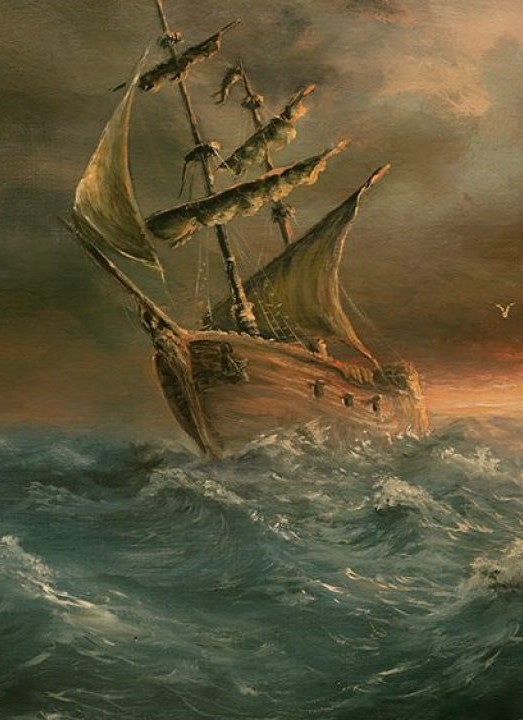
In late 1735, John Wesley and his brother Charles left England on a ship bound for the American colonies. The two brothers, sons of an Anglican priest, were on a mission…literally. They had sensed a call from God to go to the southern colonies and share the Gospel with Native Americans. Their mission would be filled with challenges.
In fact, just getting there would be a challenge!
On Sunday, January 25, 1736, a terrible storm erupted over the ocean just as a worship service began. While German and English Christians sang hymns below deck, the wind, the rain, and the waves grew even wilder on the surface. During one of the songs, a massive wave struck the ship with such ferocity that it actually split the main-sail in pieces and flooded the ship so thoroughly that water began to pour down into the lower decks where the passengers were huddled together. Wesley later recounted the event in his diary by saying it was “as if the great deep had already swallowed us up.”
In the midst of the terror, the young preacher somehow noted a radical difference between the way the English Christians responded to the storm and the way the German Christians, the Moravians, responded to the storm. Understandably, the English Christians began to wail and scream in fear. But the Moravians just continued to calmly sing their hymn to the Lord.
Eventually, the ship passed through the mighty storm so Wesley went to ask the German Christians a few questions. “Were you not afraid?” asked the future father of the Methodist Church.
The leader of the Moravians replied, “I thank God, no.”
John then asked, “Were your women and children afraid?”
Again, the Moravian pastor replied, “No, our women and children are not afraid to die.”
The reason Wesley had been so terrified during the storm was because he was not yet a Christian, himself. Yes, you read that correctly. Wesley was headed to America to help people become Christians…when he wasn’t even a Christian himself!
This particular storm at sea was beginning to reveal the storm in his heart.
 Home
Home 
